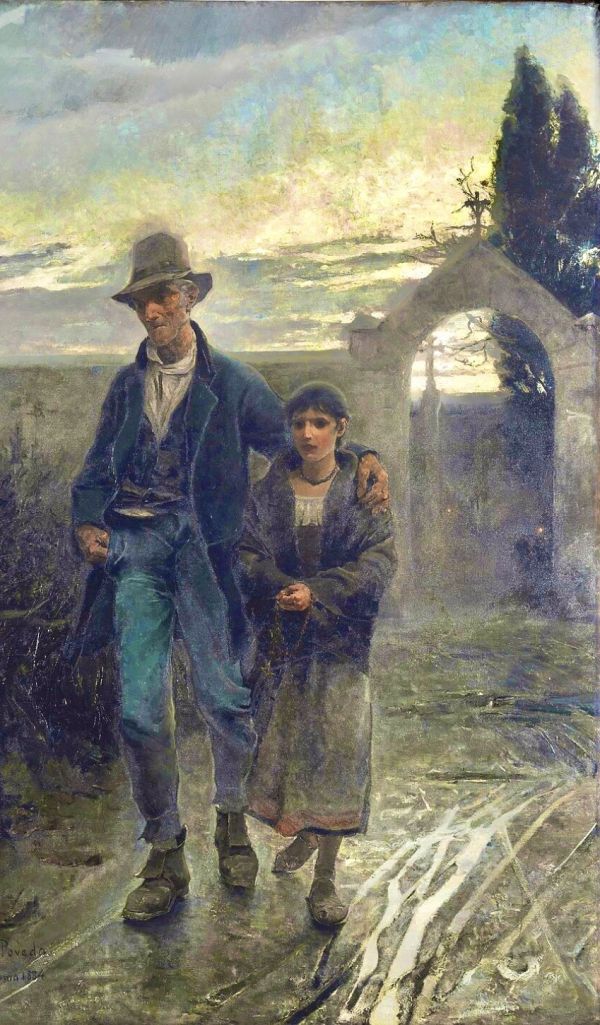Commemoration of All the Faithful Departed
On the occasion of the recent passing of my parents, to the torment of the illness and the loss of both (soon) was added the annoyance of an environment that continued to give me "condolences".
As for good manners, of course, but who has assimilated the language of the Faith does not mourn anyone, nor does he speak of "dead" but of Deceased ones. They live.
Not as survivors of the blows that life holds, but as ‘dilated’, authentic, adorned ones - and finally fully realized.
Women and men… ‘blossomed’ in everything, experiencing a new kind of being in their own essence; a different existence.
As in an atmosphere of pure love, where like Jesus we no longer live for ourselves, but one with the other and one for the other.
With no pressing chronometers, nor abandonments.
The term comes from the Latin verb «defungor» [infinitive «defungi»] which indicates the partial term of a story, not a total fulfillment.
Not a definitive border that would open on the nullifying and cavernous abyss of lost shadows or larvae without momentum, devoid of identity and future - after the transit in time.
The condolences [from the Latin «cum-dolēre»] turned willingly within a purely pagan mentality or linked to an archetypal sense of religiosity.
That kind of conviction led relatives and friends to grieve - a hopeless cry - which Jesus openly rebukes [Jn 11:33 Greek text; some translations are uncertain].
To believe that with death everything ends means to imagine that existence is a progressive decay into the void.
This conviction makes any path of growth, even spiritual, consider absurd. And it postulates the senselessness of getting involved, of committing oneself to the ideal of the lasting Good - for a Beautiful that continues beyond our earthly life and in favor of our neighbour.
“Condolences” therefore indicate in themselves that everything is over.
In the epigraph on the portal of a cemetery of a town not too far from me we read an inscription in large letters: «here over the centuries lay affections vanity hopes».
The cold of the end of all beautiful things, and the "ice" of the neoclassical revisited in early twentieth century style... perfectly matched on whitewashed travertine coating.
Instead, Hope attracts us and refreshes the spirit, overcomes outrage, gives meaning to our going.
Already the believers of the first centuries had supplanted the pagan idea of the appointment of our sister death as «dies infaustus», replacing it in its opposite: «dies Natalis».
Day of true Birth, within the same Life now complete, healed.
Life, which precisely proceeds - beyond the temporal or locality parameters.
Without the fatigue of existing that we experience. Immersed in the vastness of being.
Life without the struggles against oneself, and which continues in the satisfying, blessing Embrace of a Father who does not depersonalize but expands the character existence, the qualities of his sons.
In this blossoming full of light and warmth we are as if we were refounded on the prototype-Project of the authentic Son.
Alliance Trait that we should and perhaps could have been.
Overwhelmed ones with blissful Happiness, for our shadow-part is now included; devoid of judgments and comments.
[Commemoration of All the Faithful Departed, November 2]












